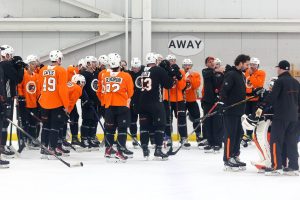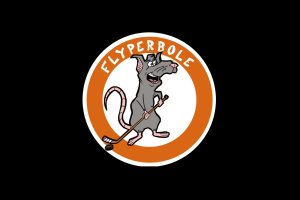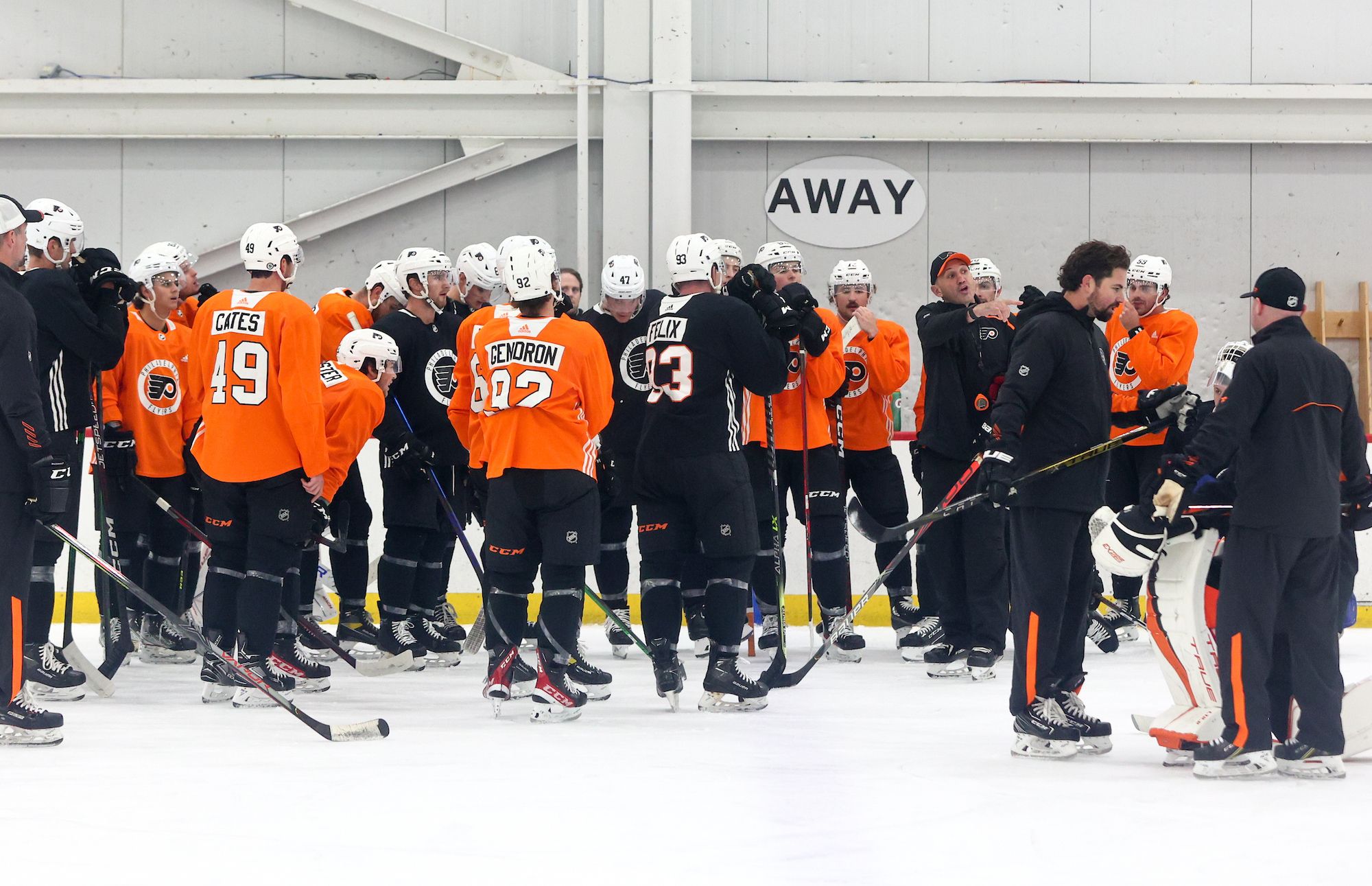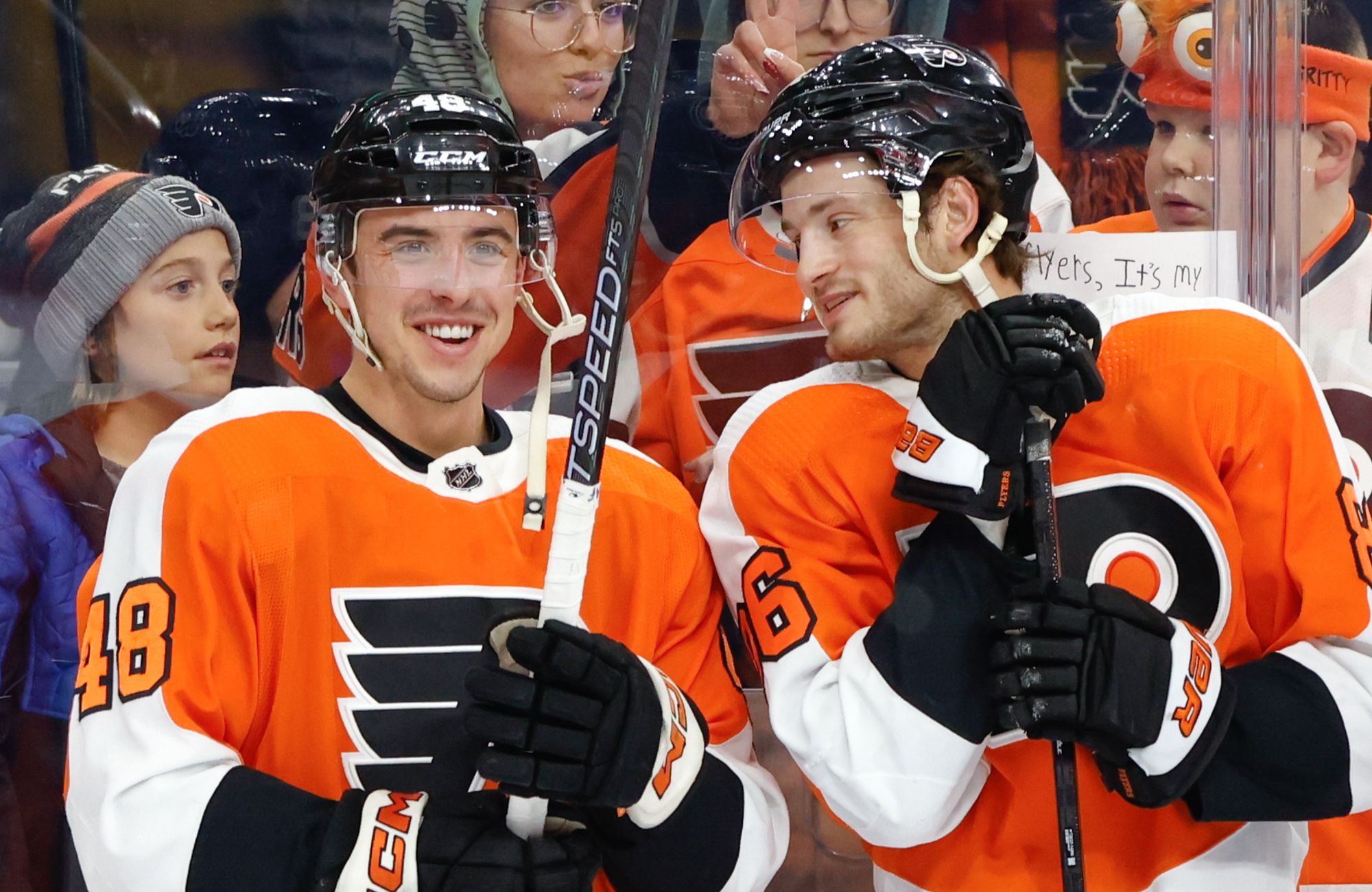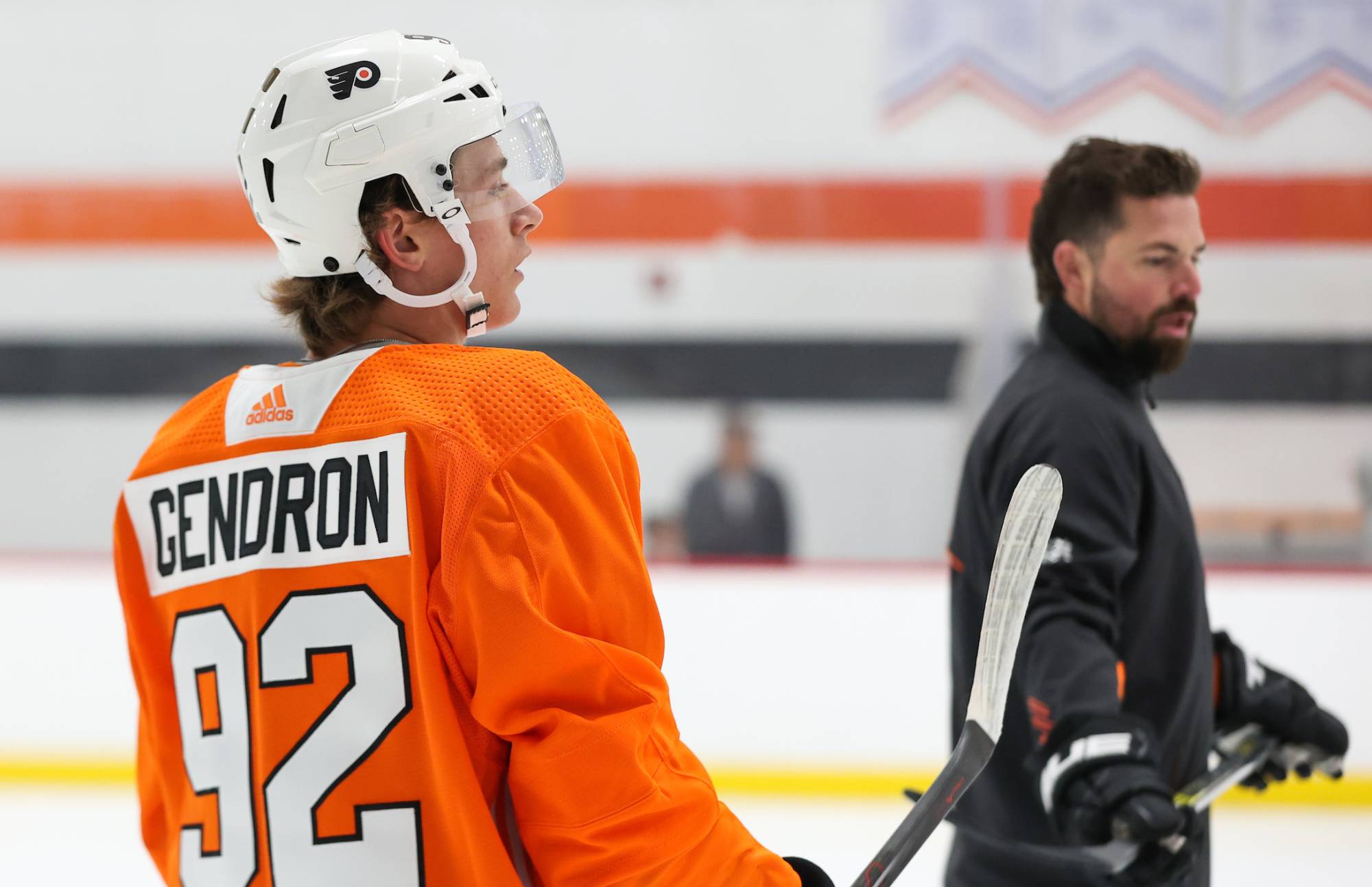The following transcript comes courtesy of the Flyers PR department. Thanks for spending the first period typing, interns! We begin with Peter Luukko’s opening statement.
Today is a great day for the Flyers. It’s a great day for not only our fans, but our players and our coaches, extending Paul [Holmgren]. Both Ed [Snider] and I feel that Paul as done an outstanding job. He came out of the lockout with the style of play changing a bit and he built a team with skill and speed.
He’s had the success, but at the same time we haven’t lost our Flyer identity and I think that is very important because our fans, players, and coaches alike expect us to be a tough team to play against, a gritty team and a hard team. But as the game has changed a bit, Paul has done a heck of a job adjusting to that and his record speaks for itself.
Questions begin after the jump.
Q: Peter, Paul has developed some relationships with players away from the ice, helped them with some off-ice issues, and several free agents have said one of the reasons they came here was because he cares about his players. Do you think that’s part of his success here?
“There’s no doubt he’s a players general manager and he’s a good person and an honest person. When you’re honest with players and support your players, word gets out in the league. One, they play harder for you when they’re here but word gets out that their the type of organization we are and we’ve always been that way and right back to Ed Snider and Keith Allen when they started and right through Bob [Clarke] and then Paul [Holmgren].”
Q: Do you find that honesty also is shown when he’s dealing with other general managers? You probably see that in other meetings. How is he thought of by other general managers in the league?
“They have a lot of respect for him. I think one thing that is very interesting with Paul is that he deals with every general manager in the league. Sometimes when you get in you have favorites or maybe you had a difficult time with somebody and you stop dealing with them. If you look at Paul, he has that great relationship. But at the end of the day, Paul wants to do what’s best for this team and what’s best for winning so he puts everything aside from that and does what’s best for the team. But his contemporaries really like him. And he had that reputation as an assistant general manager and he dealt with a lot of those guys at that time, and he’s just carried that on.”
Q: Picking up on that thought, did you learn more about him and some of the most difficult decisions that he had to make last year, obviously John Stevens comes to mind.
“Well I think we learned a lot about each other in that difficult season. That’s probably one of the toughest years I’d like to say in any of our lives, and the way at first he came together and said OK, here’s what I’d like to do, here’s the plan – let’s begin to get rid of some of these contracts, we’ve got some good young players coming in. The Forsberg deal is a difficult deal. Peter is a very good player. But we cleared the cap space, played the young players, and then went out and got the free agents. So right from the beginning you could see Paul had a plan and he had the calmness to follow through on that and when there’s so much pressure on a brand new general manager to win, and he did that. And the John Stevens situation was very difficult and it dwells on all of us and John’s family, drafted by the organization, played in the minor leagues, played at the major league level, won Calder Cups, and had a lot of success. But again, Paul had to do what was best for the team and what was best for us long term. Those are difficult decisions to make, but he made the decision and certainly you learn a lot about someone in the toughest of times.”
Q: Paul’s first year you were at the bottom of the NHL. Is there one move, one signature move that he’s made to transform this team in you mind?
“I think in many ways it was moving [Alexi] Zhitnik for [Braydon] Coburn at the time. Making the Peter Forsberg trade which, one, gave the young guys, Mike Richards and Jeff Carter, the opportunity to play and lead the team and then clearing that cap space. I think the second great move, and we had talked a lot about it at the time in the summer, was when he traded the draft choice back to Nashville to get the rights to speak with Scott Hartnell and Kimmo Timonen. When you’re coming off a bad year and had a tough time, you’re obviously concerned about your ability to sign free agents and I know Ed Snider was at the time. We actually convinced Ed that we could sign these free agents because of him, because everybody knows Ed Snider and this organization wants to win. But again there’s some doubt coming off a tough year, do some of these guys want, especially a person like Kimmo, probably his last contract, will he want to sign with you. But the ability to talk to these players early, before the crazy day of free agency, I think those three moves really began to get us on the right track and then obviously signing Danny Briere on top of that and here we are today.”
Q: When you look back at when you first made Paul the general manager, originally he was the interim general manager, that plan you talked about that put in place, came to you guys so quickly, was that so impressive why three weeks later, you said this is the guy we are going to go with long term?
“There’s no doubt. Look how bad our record was, but you could see he saw the future and Bob Clarke was a big supporter of Paul. It was really interesting; Bob said something to me at the time that half-registered but registers more now. He said ‘you know Peter, he’s ready, he’s good.’ He’s telling Ed and I this but he’s a Flyer. And you begin to see that our organization, from Keith Allen through Bob to Paul, we’ve had that style of play and that’s hard to keep up in this game. It was a plan, but also a Flyer plan. I think that was very impressive and important and obviously, it changed everything.”
Q: Peter, how important was it that his background was so many years watching both junior players and the draft, and being involved with some of the free agent signings long before he became a general manager. How important was that in your mind to lead to the success where he is now because his fingerprints are on every part of this team.
“That’s a good point. Paul’s experience is second to none, playing assistant coach, coach, getting involved in player personnel and the scouting and bringing Paul in, we couldn’t have picked a better time when you think about it. We had a difficult year, we had some picks. Literally, how often does a general manager get to see all the best players? It’s not generally their job to see, certainly as often as Paul had the past few years. The game is changing. We see it now more than ever how the game is so young. There are so many young players in the league. You know, Paul’s experience is kind of quiet because he’s a modest and quiet kind of guy. But, with that wealth of experience, he really slipped right in.”
Q: In terms of being a “Players GM,” has a player come to you and said anything profound or anything specific that comes to mind?
“Someone asked me ‘does he ever smile?’ [laughs]. I said ‘he’s a really funny guy, you wouldn’t believe it’. But, the players appreciate his honesty and I’ve heard this many times; you know where you stand. Even when he may call somebody in and maybe the situation isn’t the best, and they’ve told me this, they know that he’s with them. I think that’s so important. That is a good leader. Even when things aren’t good and maybe you haven’t been doing things right, or things are going bad, if you know a guy is ultimately rooting for you, then you can take the criticism.”
Philadelphia Flyers General Manager Paul Holmgren
“I’d like to thank Ed Snider and Peter Luukko again for this contract extension. I am truly excited about this opportunity. I look forward to continuing to work closely with Mr. Snider and with Peter, along with our coaching staff and of course our players in pursuit of the ultimate goal here with the Flyers, and that is to win the Stanley Cup. Philadelphia is such a great sports town. I’m really honored and proud to be a part of what is going on here. I think our fans are ravenous, and our fans are passionate. I think that all of the sports teams in this town are all pushing each other and pushing the envelope trying to win the championship in their respective sports. I look forward to trying to accomplish that goal over the next few years here with the Flyers.”
Q: Paul, I talked to Peter today and he said that when you took over after the lockout the game has changed. He said it’s called differently and the game is a lot quicker, yet you have kept the Flyers identity. Can you talk about the difficulty of doing that since you took over?
“I think part of being a Flyer involves bringing your lunch pail to work. I don’t think that’s ever going away. That is part of our culture and tradition here. In terms of talking about the way the game has changed; you’ve got to be able to handle the puck. Fixing your defensemen is one area that we really set out to attack and try to make better over the last few years. If your defensemen can’t go back and get the puck and make plays, you’re going to have a hard time.”
Q: Paul, no general manager can do his job alone. Can you talk a little bit about your staff and what they bring to the table?
“Obviously the guys I lean greatly on are John Paddock and Barry Hanrahan more often then not, and also Chris Pryor, who is the Director of Hockey Operations on our staff. Those three guys I talk to daily. John is a guy that’s accomplished as much as he has in the coaching ranks, he won three Calder Cups as a coach in the American League. He’s just got a tremendous eye for the game and he’s the guy I lean on in that regard. Barry is knowledgeable with the salary cap and what we can and can’t do. It gets tricky at times but Barry is very in-depth at figuring things out. It’s not rocket science but sometimes it seems like it is, and Barry helps out in those regards. Chris’s knowledge and expertise in the scouting end of the business is tremendous. He is very well connected with other scouts throughout the league and has a great tree of who to contact and who to talk to, and he actually gets out there a lot and finds players.”
Q: Do you ever allow yourself the opportunity to think back to 2006 when you first took over, and think how far the team has come the first year and how far they’ve come since?
“The one thing I remember is getting back to how passionate and ravenous our fans are. That was an awful year. I don’t want to think about it but thanks for bringing it up [laughs]. At the end, we started to turn around a little bit. We made a couple deals, bringing Scottie Upshall and Braydon Coburn in. I thought that gave us a little push of enthusiasm. But, the fans were great that whole year. Thank God for ‘the dancing man’ [laughs].”
Q: You played, you coached, you assistant general managed, you scouted. Was there a point where you thought that this was the job you wanted?
“You know, not really. I was perfectly comfortable doing what I did for [Bob Clarke]. I like getting out and seeing junior games, and I like going to college games. When Clarkie stepped down I sort of made a vow in my own mind to not get away from doing that. But, the nature of the job sometimes has kept me from doing as much as I’d like to do. That’s something I still think about and I want to do is get out there and do that. But, I was perfectly happy doing that. Clarkie is still a good friend of mine and I still talk to him on a daily basis. Had this never happened I would’ve been very comfortable. I’m happy that it worked out the way it did. Clarkie is doing good and he looks great. I love this job; it’s great. Again, this is a passionate town and it’s just great to be here.”
Q: You’ve mentioned Bob Clarke. How have you benefitted from him?
“He’s been around a long time. He’s got a lot of experience, especially last year when it was nip and tuck whether we were going to get into the playoffs. He really brings a lot to the table.”
Q: Does he see things that you don’t see?
“Yeah, I would say he probably does. He sees the game a different way than I do at times. I mentioned John Paddock. [Clarke] and John can watch the game up in the [press] box and they can see different things going on during the game. I think that it’s good that they each bring that perspective to the game.”
Q: Very few, if any franchises in any sport have as many former players around as the Flyers do. Why do you think that is?
“I think some of that probably goes back to Mr. Snider. I think he’s done very well to get them. A lot of those players won Stanley Cups here, and it probably goes back to him more than anything. Just look at Bobby Clarke. Following his great career as a player, he stepped right in. I know this: he didn’t want to become a general manager when he did. He was sort of forced into it. He went in kicking and screaming. He wasn’t exactly thrilled about it, but he’s made a good career out of it. He’s a real loyal guy, too. One of the things I’ve learned from Bob is that you’re in a tough business. You need people around you that you can lean on and that’s one of the things that I do with him as an assistant.”
Q: You mentioned briefly about the other teams in this town. Does that make your job more difficult, more fun, or more challenging?
“Probably a combination of all those things, but also it’s exciting, because I know for a fact our players are going to Sixers games. I know when the Eagles are playing, and when they were in the playoff hunt, and when the Phillies were on their run at the end of last year, and even when they made the World Series a few years ago. You can see the excitement of coming to the football field, the ballpark, and the basketball court. I think it’s great for the players, and that’s what’s exciting for me about it. I think we can keep pushing each other as sports franchises.”
Q: Paul, where did you find Sergei Bobrovsky?
“Sergei is a kid that we knew about in his draft year. To make a long story short, a lot of times we’re afraid to draft Russian players because you can’t sign them. They stay in their own country, where they can make more money than they can from coming over here. It came up last year, the opportunity to maybe sign him as a free agent. One of our scouts looks at the KHL [Kontinental Hockey League] exclusively. Sergei was stuck for the last couple of years playing for a not very good team, but his goals-against was good, his save percentage was good. We watched some tape on him and decided to take the plunge.”
Q: Back in your first year you lost all of those games. Was there any particular acquisition that helped turn things around?
“To get a player such as a Danny Briere as a free agent, but that’s not necessarily all me. You also have to mention the guys we picked up in trades, a guy like [Braydon] Coburn. We got the rights to Kimmo [Timonen], and Scott Hartnell. That was a little bit of luck. At the end of the day I think those guys recognized that the Flyers were in it to win it, and that’s why they wanted to play here.
Q: Paul, Ville Leino is another one of those guys. He wasn’t a star before he came here, but he’s been tremendous. What did you see of him in Detroit that made you want to pick him up?
Well, we had a pretty good idea of him from his playing days in Finland. It’s no knock on Detroit, they’ve got a pretty good team up there. He just couldn’t crack their lineup, other than the fourth line here and there. They were probably going to put him on waivers, and they made a trade. We were fortunate to be involved in that. Obviously we’ve benefitted from Ville [Leino] playing the way he’s played. We felt we knew enough of Ville. He’s a good hockey player from seeing him in Detroit and Finland as well. It just took a couple of injuries in the playoffs for him to get in the lineup.”

